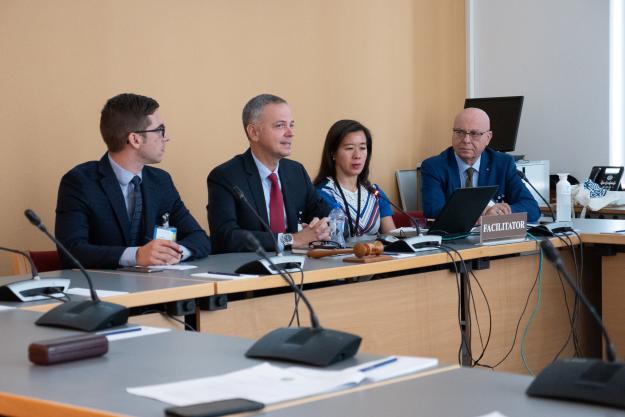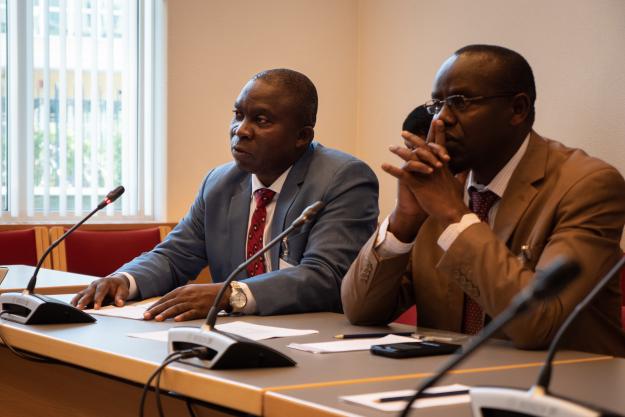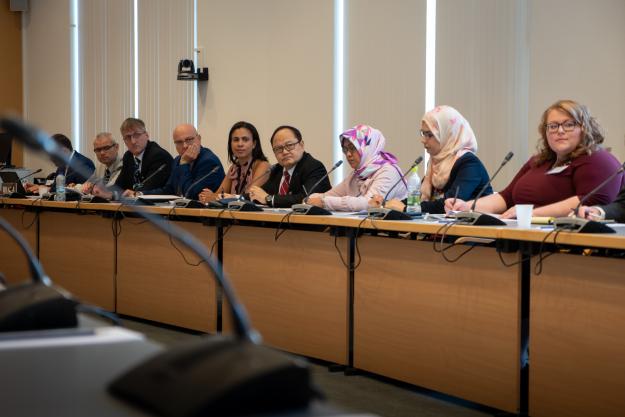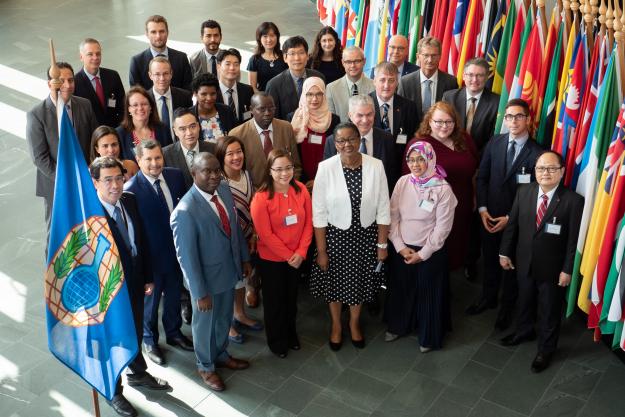
THE HAGUE, Netherlands — 30 July 2019 — Legal experts from 12 States Parties to the Chemical Weapons Convention (CWC) exchanged best practices in developing legislative and regulatory measures and frameworks to address chemical security, during a pilot technical workshop held at the Organisation for the Prohibition of Chemical Weapons (OPCW) headquarters from 24 – 25 July.
In her opening remarks, OPCW Deputy Director-General, Ambassador Odette Melono, highlighted the critical role regulatory authorities, international organisations, and industry associations play in addressing chemical security: “All of you bring valuable insights into how your country’s legislation and regulatory frameworks are preventing chemicals and technologies from being diverted to those who would misuse them. Your experiences will inform the sort of benchmarks we need to set – these effective methodologies are an example for other countries seeking to enhance their national legal and regulatory frameworks.”
The workshop participants discussed international legal frameworks on chemical security and exchanged views on various initiatives being undertaken by industry officials to strengthen chemical security. They also looked at methodologies for developing legal tools, including approaches to risk assessment and gap analysis. Information on respective national legal frameworks was also shared, including implementation challenges.

The OPCW Technical Secretariat provided details about the Organisation’s mandate on chemical security and ongoing efforts to assist its Member States in enhancing their chemical security regimes. Participants also discussed implementation of the legislation relating to the Chemical Weapons Convention intended to reinforce chemical security by prohibiting and penalising illicit activities involving chemicals, and averting the proliferation of chemical weapons.
In discussions, participants highlighted the need for technical assistance by the OPCW in various areas, such as revising existing measures in order to identify gaps, developing chemical security laws and regulations, and enhancing capacities in effective national implementation of chemical security measures.
The participants acknowledged that while OPCW Member States had already been adopting various measures, the growth of chemical industries, global chemical trade, and the prevailing threat of the potential misuse of these goods require a reassessment of the national legal frameworks to ensure that gaps are properly addressed.
Representatives from Algeria, Australia, Brazil, Indonesia, Kenya, Republic of Korea, Nigeria, the Philippines, South Africa, the United Kingdom of Great Britain and Northern Ireland, the United States of America, and Vietnam participated in the workshop.
Technical experts from the International Council of Chemical Associations, United Nations Environment Program, 1540 Committee of Experts, the Pacific Northwest National Laboratory, and the National research Council of Italy were also present to share their expertise and discuss ongoing initiatives aimed at supporting OPCW Member States in their efforts to develop legal measures concerning chemical security.

Background
As the implementing body for the Chemical Weapons Convention, the OPCW, with its 193 Member States, oversees the global endeavour to permanently eliminate chemical weapons. Since the Convention’s entry into force in 1997, it is the most successful disarmament treaty eliminating an entire class of weapons of mass destruction.
Over 97% of all chemical weapon stockpiles declared by possessor States have been destroyed under OPCW verification. For its extensive efforts in eliminating chemical weapons, the OPCW received the 2013 Nobel Peace Prize.

